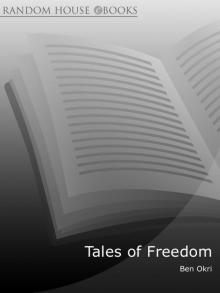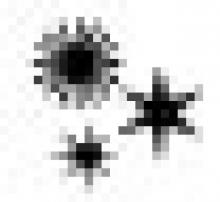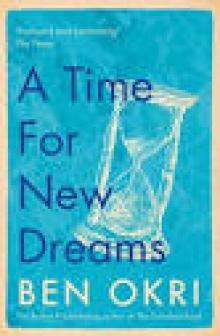In Arcadia Read online
Page 2
Then, finally, to round off the core of the crew, there’s Jute. Never seen her before, but when I first clap eyes on her I automatically nickname her The Spy. The eyes and ears of Big Brother. Listening to everything. Sees everything. Expresses no opinions. Expresses no emotions. Face like a bucket of water. Expressionless as a mirror, as a book without a cover. But beneath the expressionlessness, a terrible mask of inflexible judgement, a Northern severity, an absolute moral sternness. Her gaze makes you uncertain about the condition of your underwear. Her look makes you doubt the health of your bowels. People who address her don’t speak clearly, because they fear her silent judgement of their dental hygiene. Everything about her is terrifyingly neat. She’s a Gorgon of moral rectitude, a Medusa of propriety. Humourlessness never had a grimmer face. She makes one think of those people who have had pitiless and joyless childhoods, whose entire adult life is one long revenge against all those who laughed as children. She’s in the team clearly to make sure that we have absolutely no fun. She’s the controller of our meagre initial purse, she’s our movable accountant, the organisation incarnate, with a fresh rule book always to hand, readily consulted. One can only pray that she gets kidnapped. Otherwise, it’s like having all the things you ever revolted against, the strictures of school, the intolerant headmistress, the echoing corridors of dreadful institutions, the cabal of Chinese whisperers, the lifelong killjoys, all rolled into one fanatical obeyer of corporation edicts. That’s who we’ve got supervising our escape from our failures and just about everything else.
There’s the six, an incompetent crew, a crew from hell. If we don’t murder one another, we’ll create a new religion.
4
It turns out, however, that they’ve all changed since I last saw them. I didn’t notice it straight away. We never notice such changes straight away, we just go on treating people according to the way we have always thought of them. A wonderful failing, I think. We hate the idea of people changing. Anyway, they’d mostly changed, some for the worse, some for the better, some merely adding on more weirdnesses to the ones they had already. I can’t say I know them any more. But I’ll let my impressions stand, because that’s how we see people, in an unchanging past tense, and that’s how we measure their changes. And so, at the time, they were still the same old faces to me. And I was still the same old bastard to them. Maybe I too had changed without knowing it. We are always the last to know.
5
The meeting proceeds. Folks talk to one another. I talk to no one. I scowl by the window, staring out into grim grey suburbia. The slate coloured light of the world fits my soul perfectly. I drink in the delectable juice of my own malaise. They all talk behind me, about filming schedules, stop-off points, countries, hotels, bookings, traveller’s cheques, conversion rates, all the tedious logistics of low-budget films. They talk loud enough for me to hear. They know it’s the only way to convey information to me. Who can withstand my scorn when I’m sitting in it like a pasha on silk cushions? Compared to my flaming acid spirit, Iago is a slug. Even dogs behold me in my meaner moods and rear back, howling. I pride myself on being able to generate such horror. This, I think, is a major achievement. It takes a peculiar courage to inflict one’s mean-spiritedness on the world – especially on a world where phoneyness rules, phoney warmth, phoney friendships, phoney sympathies. I want to scorch them all with pure distilled contempt. I’ve become my own alchemist.
But as I stand at the window, trying to crack the pane with my expression, some of the things I hear, filtering across on whispered tones, make me wake up slowly. That may have been the first time that my cynicism came to the rescue. It was the first time that I sensed that within our journey there was another secret journey, a cryptic journey. Our trip was a pretext for something else, and that something had to do with the much whispered name, Malasso…
What is it about certain names that upon first hearing them they conjure a fate, a story, a malediction, a misadventure, a misfortune crouched just ahead of you like a road that has turned suddenly into a gigantic cobra? What is it about certain names, whispered in a certain way, that makes you suddenly aware of dangers ahead, of hairpin bends that lead straight over precipices the colour of perfect midnight? Names that make you think of perils in the evening, of the glint of a gun at night, of a blade and the warm smell of blood, of treachery slashing the soft flesh of your belly with a warm and sinister smile? Such were the effects of the susurrations of that name…
But before I could turn round, or ask a question, the conversation moved on to practical things. Itineraries. Tickets. Laundry arrangements. And then a gentle litany of magic names, place-names; vowels and consonants that, for a moment, lisped past the fortress of my impregnable cynicism, and wove a feathery enchantment over the little boy who once dreamt of flying with his own wings to all the lovely places in the world, places whose beauty was compacted into their names. I listened, and heard, briefly, something new, in the hidden landscapes. Waterloo… Exilus… Eden… Paris… Babylon… Utopia… Versailles… Atlantis… Arcadia…
6
Maybe I slept. Maybe I dreamt. Maybe the words cast a yellow spell over my mind. The names set me dreaming, a little. And I was a little boy again, with a red train, travelling across the green oceans of the spherical world at the speed of my own willing. Atlases dissolved into landscapes, and the revolving orb became my journey in space, round the lives of millions, unseen from the moon. But the names set me to dreaming, and brought me back to earth again, and set me to cursing. I went and got a beer from the fridge, and scowled, and berated everyone, and was generally foul, and the worse I got the more I knew that the names had got to me. There’s nothing makes a man more mean-spirited than when his malice has been set in flight, charmed into lightness.
I made damn well sure they all paid for it, and gave myself a fine ugly reputation all round, and topped it up for those that didn’t know me already and framed it in gold for those that did.
But the charm had worked. Before I knew it I was rehearsing the journey, swearing all the while, spraying beer at the sound man, breathing my disgusting fumes on Jute the inflexible. The cameraman made a few trial shots, and muttered something about my profile having become more noble for my greater biliousness. This, of course, enraged me; and my rage delighted them. And so my hostility towards the camera crystallised. I became convinced that it was a spy, certain that it was not so much a faithful recorder of what it captured as a distorter of what it gazed upon. No one with any intelligence has ever had a truly comfortable relationship with that abstract piece of technology. It is a cyclopean head without a brain, with an eye that gazes insensibly upon what it witnesses. It is a piece of technology for the magnification of the ego, the multiplication of unreality. It stares on corpses as on flowers with the same mindless equanimity. It devours light. It feeds the eyeballs pointless images, it has an inflexible point of view, and it is the greatest disseminator of illusions. In a world already composed, atom by atom, of illusions (the illusion that what we perceive is the true reality) you can see how this instrument tyrannises the minds of men and women.
How strange, phoney, self-conscious, greedy, egotistical, and childish people become when a camera is trained upon them, offering their feeble minds the illusion of fame – of fame, that most unexamined of monsters, that most fabulous of sirens, that devourer of true time and true living, that deceiver, ruiner, that externaliser of fantasies. To yield to the camera and its hidden promise of transforming your life through the multiplication of your image, to yield to it, like a whore, a pervert, like a pathological exhibitionist, like a stripper, is a shameless confession of imbecility. It is to concede that your true worth and measure reside only and absolutely in the eyes of others; it is to concede that you don’t exist till you are indeed seen on the screen. It is to collude in the invalidation of your natural flesh-and-blood life; it is to render yourself impotent, unhistorical, non-existent, marginal, a eunuch of time, a cipher of space, a non-person; i
t is to accept the notion not so much cogito ergo sum as in camera ergo sum, a monstrous reduction of self from selfhood to visibility-hood. The logical conclusion therefore that an intelligent person can reach is the one reached by me on that miserable day – which is that the camera is one of the devil’s spies. It looks into your external ego and reports to the mighty corporation of the diabolical that here is another lump of meat ready for processing in the vast factories of celluloid hell; that here is someone willing to make a pact with the great witty prince of the dark, a pact in which the image of their most perishable aspects is traded for the mysterious animation of their life; that here is one cheap to buy, cheap at the price, an image for a soul.
I had developed a tremendous hatred for the camera; and the more it flattered me and seduced me with the lying images of beauty, of a splendid profile concocted out of my celebrated bad-temperedness, the more I loathed that machine of egotism. And so that day, while we went through our trial runs, and saw what pleasant images of me it produced, the more difficult I became, the more refractory. This gave me much pleasure indeed, a pleasure spoilt by the curious discovery that there is nothing the camera likes so much as a refractory subject. As with a true courtesan, the more resistance there is to overcome, the more fascinated the camera becomes, the more there is to show, to see. A dynamic is set up. Will egotism triumph over coyness, over unwillingness? The camera becomes riveted, it becomes gleeful. If you look hard enough you can sometimes catch the camera slobbering, no, salivating, in preternatural lust, over a vista of corpses, over disasters, famine, plagues, transgressions, deviancies, monstrosities, horrors. It looks on evil with a glint in its eye. When it lingers on beauty that’s because it wants to violate it, and when it dwells on innocence it does so with concealed cynicism. Sentimentality delights the camera, for sentimentality is a distortion and conceals a vague monstrosity. The devil gazes on the world with beady eyes; and the meaning of its gaze is more ambiguous than death, more menacing than a vile hidden intention. There is a ghoul in every camera that feeds on living flesh, and only the wise or the lucky subvert the spy and the ghoul, feeding one lies that reveal truth and feeding the latter dying flesh that it may, unintentionally, yield living revelations.
If one must work for the devil, then one must be an unpleasant servant, a servant that wants to overthrow the master, and gain the sublime laughter of liberation. But who understands these things in this world of blockheads and literal minds, in a world where people thoughtlessly believe what they read, accept what they see, and are convinced by everything they hear. I could be lying to you now and you’d believe it because I say it is thus. And so I play the game of revolving meanings, the double and triple bluff, and leave you enraged at an enigma that does not speak the plain idiotic language that you are used to, the language by which politicians and admen con you, the language of so-called plain speaking that blinds you to the lies you are fed, the language that makes a sheep out of you. If you cannot read me inside out, like a riddle or a paradox, how will you ever make sense of the invisible inscriptions? I hope I’m getting on your nerves. I hope I’m infuriating you so much that you want to throw this book aside and pick up one more suited to your sheep-like complacency. Actually, I don’t mind sheep. It’s human beings behaving like sheep that I can’t stand. I hope this is getting through to you. I don’t want any complacent bastards on this journey. There are enough of those as it is. We are drawing up to the next station, a chapter ending. You can get off and bugger off if you don’t want to continue. But don’t ask for your money back. I’ve spent it.
7
Every now and again life sends us little messages. The messages are meant for us alone. No one else can see them. No one else perceives them as messages. They may seem perfectly banal to the world, but to you, for whom they were intended, they have the force of revelation. Much of the failure and success of a life, much of the joy or suffering in a life, depends on being able to see these secret messages. And much of the magic, or tragedy of life depends on being able to decipher and interpret these messages. Those who spend their lives over-deciphering tend to go mad, they go round the bend, they become paranoid; and every billboard and scrap of paper which the wind blows their way, or every other image or word called out on a television screen becomes a message of overwhelming importance to them. Then the messages drive out living, drive out life. But those who live their lives without seeing the messages at all, or seeing them but not deciphering them, or not interpreting them properly, live dumb lives, perpetually adrift on the barren seas of mediocrity and insignificance, the deadly boring wastes of orthodoxy. In short, they have no dialogue with the universe or with themselves.
There is nothing more scary than when a cynic starts to prophesy. Nothing more hair-raising than when the blind can see. This world is upside-down, inside-out, my friend. What is real is unreal, what’s unreal is real. Sometimes my mind scares me. Sometimes one gets a notion about the world that’s too great to think through. For, sometimes, messages come from behind the veil of living. Sometimes an inscription appears in the quotidian which is an important road sign in your life. They appear right there in the midst of the most ordinary moments. Don’t ask me where the messages come from. Don’t ask me where the inscriptions come from. Maybe we just see them because they are right for us. Maybe we see them because we need to, because we’ve been too blind to what life is trying to tell us. How the hell should I know. Belshazzar saw his in the midst of a splendid feast. A hand inscribed his message on a wall. Other people have seen signs in altered states, and read the wrong inscriptions, or didn’t interpret them right. They come in a thousand ways. They come in daily life, in as many forms as there are ways of reading the world. They take the form of symbols, of words, of something heard, or whispered in one’s head. They are blown over by the wind. They appear in the sky, or stand out suddenly in a book one is reading, or a painting one is staring at absent-mindedly, or a piece of music not listened to but heard in a mysterious new way. They are there and then they are gone. Like a flash of lightning not seen but sensed. Something made clear. Then made dark again. Some people say that the universe is a constant message to us anyway, a message of startling simplicity. The simplicity of the greatest riddle or paradox. I don’t know about all that. Too deep for me, I think. All I can say for sure is that there is a mysterious veil that separates the living from the others. And this veil is made of perception. And don’t ask me who the others are. They may be the dead. Except that the dead are not dead: they are just not alive in bodies. They may be angels, guardian angels, sinners and cynics that we are. They may be one’s potent and powerful ancestors, shaking their heads in sadness at the enormous blunders we are making in our lives. They may be illumined beings. Who can say yeah or nay? They may sometimes even be demons, messengers of the devil, who uses as many tricks to get to us as there are devices to save us. All I know is that there is a veil, and messages are projected through this veil. Inscriptions appear on the fabric of the world. We live in an unreality. We live in a celluloid universe. We live in a world quivering with illusion. Most of what we see just isn’t there. Most of the things we feel and touch aren’t there the way we think they are. Most of what is there we don’t see. Most of the things that touch us don’t feel. There may be things more real than us behind the invisible veil of reality. And our world, as on a cinema screen, can be one in which messages are flashed, projected. Maybe we flash the messages, maybe we project them. But their meaning is left for us to decipher. This is true too of dreams, the cinema of the universal interior, the celluloid of sleep. But I’m not talking about that right now. I’m talking about the little secret messages that life sends us, sends to us alone.

 The Age of Magic
The Age of Magic Infinite Riches
Infinite Riches Songs of Enchantment
Songs of Enchantment Tales of Freedom
Tales of Freedom Dangerous Love
Dangerous Love Starbook
Starbook The Famished Road
The Famished Road Astonishing the Gods
Astonishing the Gods A Fire in My Head
A Fire in My Head The Freedom Artist
The Freedom Artist The Comic Destiny
The Comic Destiny A Way of Being Free
A Way of Being Free Prayer for the Living
Prayer for the Living A Time for New Dreams
A Time for New Dreams The Magic Lamp
The Magic Lamp In Arcadia
In Arcadia